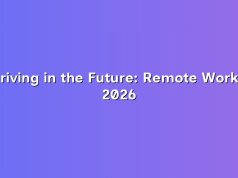The financial technology (fintech) sector is experiencing unprecedented growth, reshaping how we interact with money. Klarna’s recent partnership with Stripe, a global leader in payment infrastructure, exemplifies this evolution. With Klarna poised to launch a blockbuster IPO, this collaboration is designed to bolster its global payments infrastructure, streamline operations, and expand its reach.
This partnership isn’t just a corporate maneuver; it holds significant implications for the job market within the fintech sector. From new opportunities for tech workers to the broader impact on innovation and economic growth, Klarna and Stripe are helping redefine the future of fintech employment.
A Booming Sector: Fintech’s Role in the Economy
Fintech has emerged as one of the fastest-growing industries worldwide. With a projected market size exceeding $330 billion by 2030, the sector is fueled by innovations in payment solutions, blockchain, lending platforms, and digital wallets. Klarna, a pioneer in the “buy now, pay later” (BNPL) space, has played a central role in this revolution, offering consumers flexible payment options.
Stripe, meanwhile, provides the backbone for many e-commerce and fintech platforms, enabling seamless payment processing across borders. By joining forces, these two giants aim to enhance their infrastructure and scalability, creating ripple effects throughout the industry.
Job Creation: Opportunities Across the Value Chain
The Klarna-Stripe partnership is poised to generate jobs across multiple domains:
- Tech Development:
Fintech companies rely heavily on engineers, software developers, and product managers to build and maintain platforms. Klarna’s expansion with Stripe will likely necessitate hiring in areas such as payment architecture, cybersecurity, and data analytics. - Innovation Hubs:
Both companies operate globally, and their collaboration could spur the establishment of regional innovation hubs. These hubs would provide jobs for local tech talent while fostering a culture of entrepreneurship. - Customer Support and Operations:
As Klarna scales its operations, it will require robust customer support teams to handle the influx of users and merchants. Operational roles in logistics, compliance, and fraud prevention are also likely to expand. - Sales and Partnerships:
To grow their merchant network, Klarna and Stripe will need teams dedicated to onboarding new clients and managing existing relationships. This opens doors for sales professionals and account managers. - Regulatory Compliance:
As fintech expands globally, navigating the regulatory landscape becomes increasingly complex. Legal and compliance roles will grow to ensure adherence to international financial laws and consumer protections.
Reskilling and Workforce Development
The fintech sector’s rapid expansion demands a workforce skilled in cutting-edge technologies like AI, blockchain, and cloud computing. Klarna and Stripe’s growth could lead to increased investment in reskilling initiatives, as companies recognize the need to upskill existing employees and train new hires.
Governments and educational institutions could also play a role, partnering with fintech firms to develop specialized training programs. Apprenticeships, boot camps, and certifications in fintech technologies would ensure a steady pipeline of qualified workers.
Global Impacts: A World of Opportunities
The Klarna-Stripe partnership will have far-reaching effects on job creation beyond their home markets of Sweden and the U.S.
- Emerging Markets:
Klarna’s global ambitions, supported by Stripe’s infrastructure, will likely lead to expansion into emerging markets in Asia, Africa, and Latin America. This expansion creates opportunities for tech workers in these regions while democratizing access to digital payments. - Diverse Talent Pools:
Fintech’s digital nature allows companies to tap into diverse talent pools, including remote workers. Klarna and Stripe can leverage this model to access talent from underrepresented regions, promoting inclusivity in the tech workforce. - Cross-Border Collaboration:
The partnership will necessitate cross-border collaboration among teams in Europe, North America, and beyond. This fosters the exchange of ideas and best practices, driving innovation at a global scale.
Challenges Ahead: Sustaining Job Growth
While the outlook is promising, challenges remain:
- Competition for Talent:
The fintech sector is highly competitive, and companies often struggle to attract and retain skilled workers. Klarna and Stripe will need to offer compelling compensation packages, growth opportunities, and a supportive work environment to stand out. - Regulatory Hurdles:
As Klarna and Stripe expand, they will face stringent regulatory requirements in different jurisdictions. Navigating these complexities requires investment in legal and compliance expertise. - Automation Risks:
While fintech creates jobs, automation and AI could lead to job displacement in certain areas, such as customer support and operations. Companies must balance automation with human oversight to maintain job growth.
The Broader Picture: Fintech’s Role in the Future of Work
Klarna and Stripe’s partnership is a microcosm of a larger trend in fintech: collaboration driving innovation and job creation. The fintech sector is not just about technology; it’s about reimagining how people interact with money, making financial services more accessible, and empowering a global workforce.
For workers, this means opportunities to build careers in an industry that blends finance and technology, offering roles that are both lucrative and impactful. For companies, it underscores the importance of fostering a culture of innovation, collaboration, and adaptability.
A Call to Action for Policymakers and Educators
Governments and educational institutions have a role to play in supporting the growth of fintech jobs. Policies that incentivize investment in fintech, such as tax breaks for startups or grants for workforce development, can accelerate job creation.
Educational institutions should collaborate with fintech companies to design curriculums that meet industry needs. Offering specialized courses in fintech, AI, and blockchain would prepare students for careers in this dynamic sector.
Conclusion: A Bright Future for Fintech Workers
The Klarna-Stripe partnership represents more than a business deal; it’s a catalyst for job creation, innovation, and global collaboration. For tech workers, it signals a world of opportunities in an industry that is reshaping the economic landscape.
As fintech continues to evolve, the challenge will be ensuring that growth is inclusive, sustainable, and beneficial for workers at all levels. With the right strategies, Klarna, Stripe, and the broader fintech ecosystem can achieve this vision, creating a future where technology empowers both businesses and the people behind them.
What’s your take on the fintech job boom? Could partnerships like this redefine the future of work?




























